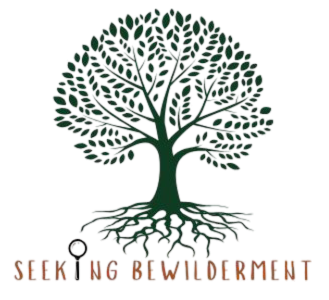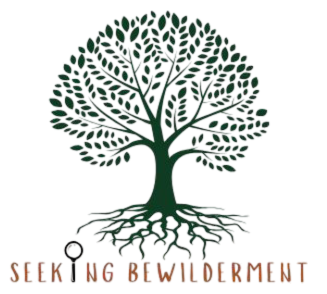Curriculum
- Home
- / Curriculum
Overview of Programs
Our curriculum, inspired by the Reggio Emilia approach, is designed to follow each child’s unique interests. We document their ongoing curiosities and build tailored learning plans around them. This allows children to explore topics deeply—sometimes for weeks—nurturing their cognitive development and enhancing their mental and physical abilities.
By guiding explorations and viewing the classroom as the “third teacher,” we set children on a developmentally appropriate journey that fosters measurable growth in cognitive, social, emotional, physical, and language skills. Our goal is to ignite a lifelong passion for learning in every child, encouraging them to embrace discovery at every turn.
Daily Schedule
Morning
7:30 am – Arrival & Morning Invitations
Calm environment with open-ended provocations
- Individual greetings foster connection.
- Child’s choice activities: sorting natural materials, clay, light table play.
8:15 am – Breakfast
Community-Building Time
- Shared meals, promote conversation, and self-help skills.
8:45 am – Explorations & Project Work
Child-Led Exploration with Teacher Support
- Art Atelier – clay, paint, collage
- Construction – blocks, natural materials
- Science Corner – sensory play, magnifiers, plant care
- Dramatic Play – evolving themes from children’s ideas
10:15 am – Group Meeting / Morning Circle
Reflection and Planning
- Children reflect on morning work and explore new questions along with songs and storytelling.
- Educators offer new materials or provocations.
10:30 am – Snack
Social and Independent Time
11:00 am – Outdoor Exploration
Nature as a Co-Teacher
- Open-ended outdoor play: climbing, gardening, nature walks, nature provocations (e.g., nest building).
Afternoon
12:15 pm – Lunch
Shared Meal with Intentional Conversation
- Children practice gratitude, manners, and community values.
- Educators model and support positive mealtime interactions.
1:15 pm – Rest & Quiet Exploration
Respect for Individual Rhythms
- Rest time with soft lighting, books, and calming music.
- Quiet activities for non-sleepers: puzzles, drawing, reflective conversations.
- One-on-one storytelling or revisiting project work.
3:15 pm – Afternoon Snack
Snack as a Social Ritual
- Children help prepare and clean up.
- Casual conversations revisit the day’s events or plans.
4:00 pm – Outdoor Time & Revisiting Ideas
Continued Exploration and Reflection
- Outdoor provocations extend morning work (e.g., building models, shadow studies).
- Teachers encourage observation and reflection (e.g., “What’s changing in the garden?”)
5:30 pm – Departure & Reflection
Family Engagement & Documentation Sharing
- Teachers highlight children’s work, quotes, or discoveries.
- Families are invited to view documentation and contribute questions or insights.
Gross Motor Skills
Gross motor development is essential for children’s overall growth, as it not only enhances physical skills but also supports cognitive and social-emotional development. Engaging in outdoor play provides abundant opportunities for movement, exploration, and cooperation with peers, fostering independence and confidence. Activities like climbing, running, and balancing improve coordination and strength, which are linked to children’s ability to focus and engage in other areas of learning. When children have the chance to develop their gross motor skills, they experience increased attention and readiness to learn, ultimately enriching their creativity and problem-solving abilities. By prioritizing outdoor time, we create a vibrant environment where children can connect with nature, engage in meaningful play, and develop essential skills that benefit their holistic development.
Fine Motor Skills
Fine motor skills are vital for children’s holistic development, as they support not only physical dexterity but also cognitive and creative growth. Engaging in open-ended activities—such as manipulating clay, threading beads, or using scissors—provides children with the freedom to explore and experiment. These experiences not only enhance their hand-eye coordination and precision but also lay the foundation for pre-writing skills.
As children engage in these activities, they develop the muscle strength and control necessary for writing, all while expressing their creativity and ideas. By emphasizing open-ended opportunities, we create a nurturing environment that encourages exploration, problem-solving, and the development of fine motor skills, ultimately fostering a love for learning and self-expression.
Language & Litercay
In our approach to language and literacy development, we revolve our curriculum around books, recognizing the power of storytelling and written words to enrich children’s learning experiences.
By integrating a diverse range of literature into our daily activities, we inspire curiosity and foster a love for reading. We provide ample opportunities for children to engage with books through group readings, storytelling sessions, and interactive discussions, allowing them to connect with the narratives and express their thoughts.
Additionally, we heavily rely on written words to support our play, labeling materials and creating signs that enhance children’s understanding of language in context. This integration encourages children to see the relevance of literacy in their daily lives, promoting vocabulary expansion and comprehension skills. Through this immersive approach, we create a rich language environment that supports communication, creativity, and critical thinking, laying a strong foundation for lifelong literacy.
Cognitive and Intellectual Skills
We provide robust support for cognitive skills by diving deep into each child’s interests and intentions, allowing us to tailor explorations that resonate with their natural curiosities. By closely observing and listening to children, we identify their passions and questions, which inform our curriculum and guide our classroom activities. This intentional approach encourages children to engage in multifaceted explorations that utilize various cognitive faculties.
For instance, if a child shows interest in animals, we might create activities that involve problem-solving as they classify different species, critical thinking as they discuss habitats, and number concepts through counting and measuring related materials. These explorations foster skills such as categorization, analytical reasoning, and creative thinking, all of which are crucial for cognitive development. By integrating their interests into diverse, hands-on learning experiences, we cultivate an environment where children can thrive intellectually and develop a deeper understanding of the world around them.
Social and Emotional Skills
We support social-emotional development through child-led play, recognizing it as a powerful vehicle for fostering connection, empathy, and self-regulation. In a child-led environment, children take the initiative in their play, allowing them to express their feelings, negotiate roles, and resolve conflicts independently. This autonomy promotes essential social skills, such as cooperation, communication, and active listening.
As children navigate their interactions, they learn to understand their own emotions and those of their peers, enhancing their emotional intelligence. These experiences build resilience and confidence, equipping them with the tools to handle challenges both now and in the future. By prioritizing child-led play, we create a nurturing environment that not only supports their immediate social-emotional needs but also lays a strong foundation for their overall development and future success in relationships, learning, and life.
Subscribe to Our Newsletter
Stay in the loop! Subscribe to our newsletter for the latest updates—don’t miss out. Sign up today!
Let’s nurture our children in the garden of growth, where they are free to explore and discover a world of wonder.
Quick Links
Contact Info
- 1023 Noble Ave, San Jose, CA 95132
- (530) 403-7877
- seekingbewilderment@gmail.com
- Lic# 434417473
Get in Touch
Ready to enroll, don’t know where to start or just have more questions in general? Reach out and get in touch with us.
Copyright 2024 Seekingbewilderment. All Rights Reserved

